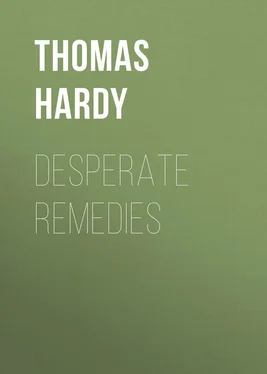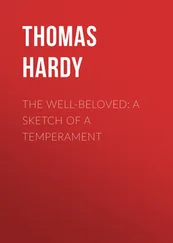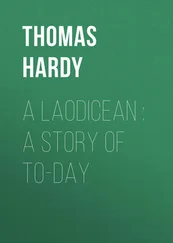Thomas Hardy - Desperate Remedies
Здесь есть возможность читать онлайн «Thomas Hardy - Desperate Remedies» — ознакомительный отрывок электронной книги совершенно бесплатно, а после прочтения отрывка купить полную версию. В некоторых случаях можно слушать аудио, скачать через торрент в формате fb2 и присутствует краткое содержание. Жанр: foreign_antique, foreign_prose, на английском языке. Описание произведения, (предисловие) а так же отзывы посетителей доступны на портале библиотеки ЛибКат.
- Название:Desperate Remedies
- Автор:
- Жанр:
- Год:неизвестен
- ISBN:нет данных
- Рейтинг книги:5 / 5. Голосов: 1
-
Избранное:Добавить в избранное
- Отзывы:
-
Ваша оценка:
- 100
- 1
- 2
- 3
- 4
- 5
Desperate Remedies: краткое содержание, описание и аннотация
Предлагаем к чтению аннотацию, описание, краткое содержание или предисловие (зависит от того, что написал сам автор книги «Desperate Remedies»). Если вы не нашли необходимую информацию о книге — напишите в комментариях, мы постараемся отыскать её.
Desperate Remedies — читать онлайн ознакомительный отрывок
Ниже представлен текст книги, разбитый по страницам. Система сохранения места последней прочитанной страницы, позволяет с удобством читать онлайн бесплатно книгу «Desperate Remedies», без необходимости каждый раз заново искать на чём Вы остановились. Поставьте закладку, и сможете в любой момент перейти на страницу, на которой закончили чтение.
Интервал:
Закладка:
‘Never mind what the people think.’ A pause. ‘You surely are not so weak as to mind what the people think on such a matter as that?’
Those words might almost be called too firm and hard to be given by him to her; but never mind. For almost the first time in her life she felt the charming sensation, although on such an insignificant subject, of being compelled into an opinion by a man she loved. Owen, though less yielding physically, and more practical, would not have had the intellectual independence to answer a woman thus. She replied quietly and honestly – as honestly as when she had stated the contrary fact a minute earlier —
‘I don’t mind.’
‘I’ll unship the tiller that you may have nothing to do going back but to hold your parasol,’ he continued, and arose to perform the operation, necessarily leaning closely against her, to guard against the risk of capsizing the boat as he reached his hands astern. His warm breath touched and crept round her face like a caress; but he was apparently only concerned with his task. She looked guilty of something when he seated himself. He read in her face what that something was – she had experienced a pleasure from his touch. But he flung a practical glance over his shoulder, seized the oars, and they sped in a straight line towards the shore.
Cytherea saw that he noted in her face what had passed in her heart, and that noting it, he continued as decided as before. She was inwardly distressed. She had not meant him to translate her words about returning home so literally at the first; she had not intended him to learn her secret; but more than all she was not able to endure the perception of his learning it and continuing unmoved.
There was nothing but misery to come now. They would step ashore; he would say good-night, go to London to-morrow, and the miserable She would lose him for ever. She did not quite suppose what was the fact, that a parallel thought was simultaneously passing through his mind.
They were now within ten yards, now within five; he was only now waiting for a ‘smooth’ to bring the boat in. Sweet, sweet Love must not be slain thus, was the fair maid’s reasoning. She was equal to the occasion – ladies are – and delivered the god —
‘Do you want very much to land, Mr. Springrove?’ she said, letting her young violet eyes pine at him a very, very little.
‘I? Not at all,’ said he, looking an astonishment at her inquiry which a slight twinkle of his eye half belied. ‘But you do?’
‘I think that now we have come out, and it is such a pleasant evening,’ she said gently and sweetly, ‘I should like a little longer row if you don’t mind? I’ll try to steer better than before if it makes it easier for you. I’ll try very hard.’
It was the turn of his face to tell a tale now. He looked, ‘We understand each other – ah, we do, darling!’ turned the boat, and pulled back into the Bay once more.
‘Now steer wherever you will,’ he said, in a low voice. ‘Never mind the directness of the course – wherever you will.’
‘Shall it be Creston Shore?’ she said, pointing to a stretch of beach northward from Budmouth Esplanade.
‘Creston Shore certainly,’ he responded, grasping the sculls. She took the strings daintily, and they wound away to the left.
For a long time nothing was audible in the boat but the regular dip of the oars, and their movement in the rowlocks. Springrove at length spoke.
‘I must go away to-morrow,’ he said tentatively.
‘Yes,’ she replied faintly.
‘To endeavour to advance a little in my profession in London.’
‘Yes,’ she said again, with the same preoccupied softness.
‘But I shan’t advance.’
‘Why not? Architecture is a bewitching profession. They say that an architect’s work is another man’s play.’
‘Yes. But worldly advantage from an art doesn’t depend upon mastering it. I used to think it did; but it doesn’t. Those who get rich need have no skill at all as artists.’
‘What need they have?’
‘A certain kind of energy which men with any fondness for art possess very seldom indeed – an earnestness in making acquaintances, and a love for using them. They give their whole attention to the art of dining out, after mastering a few rudimentary facts to serve up in conversation. Now after saying that, do I seem a man likely to make a name?’
‘You seem a man likely to make a mistake.’
‘What’s that?’
‘To give too much room to the latent feeling which is rather common in these days among the unappreciated, that because some remarkably successful men are fools, all remarkably unsuccessful men are geniuses.’
‘Pretty subtle for a young lady,’ he said slowly. ‘From that remark I should fancy you had bought experience.’
She passed over the idea. ‘Do try to succeed,’ she said, with wistful thoughtfulness, leaving her eyes on him.
Springrove flushed a little at the earnestness of her words, and mused. ‘Then, like Cato the Censor, I shall do what I despise, to be in the fashion,’ he said at last… ‘Well, when I found all this out that I was speaking of, what ever do you think I did? From having already loved verse passionately, I went on to read it continually; then I went rhyming myself. If anything on earth ruins a man for useful occupation, and for content with reasonable success in a profession or trade, it is the habit of writing verses on emotional subjects, which had much better be left to die from want of nourishment.’
‘Do you write poems now?’ she said.
‘None. Poetical days are getting past with me, according to the usual rule. Writing rhymes is a stage people of my sort pass through, as they pass through the stage of shaving for a beard, or thinking they are ill-used, or saying there’s nothing in the world worth living for.’
‘Then the difference between a common man and a recognized poet is, that one has been deluded, and cured of his delusion, and the other continues deluded all his days.’
‘Well, there’s just enough truth in what you say, to make the remark unbearable. However, it doesn’t matter to me now that I “meditate the thankless Muse” no longer, but…’ He paused, as if endeavouring to think what better thing he did.
Cytherea’s mind ran on to the succeeding lines of the poem, and their startling harmony with the present situation suggested the fancy that he was ‘sporting’ with her, and brought an awkward contemplativeness to her face.
Springrove guessed her thoughts, and in answer to them simply said ‘Yes.’ Then they were silent again.
‘If I had known an Amaryllis was coming here, I should not have made arrangements for leaving,’ he resumed.
Such levity, superimposed on the notion of ‘sport’, was intolerable to Cytherea; for a woman seems never to see any but the serious side of her attachment, though the most devoted lover has all the time a vague and dim perception that he is losing his old dignity and frittering away his time.
‘But will you not try again to get on in your profession? Try once more; do try once more,’ she murmured. ‘I am going to try again. I have advertised for something to do.’
‘Of course I will,’ he said, with an eager gesture and smile. ‘But we must remember that the fame of Christopher Wren himself depended upon the accident of a fire in Pudding Lane. My successes seem to come very slowly. I often think, that before I am ready to live, it will be time for me to die. However, I am trying – not for fame now, but for an easy life of reasonable comfort.’
It is a melancholy truth for the middle classes, that in proportion as they develop, by the study of poetry and art, their capacity for conjugal love of the highest and purest kind, they limit the possibility of their being able to exercise it – the very act putting out of their power the attainment of means sufficient for marriage. The man who works up a good income has had no time to learn love to its solemn extreme; the man who has learnt that has had no time to get rich.
Читать дальшеИнтервал:
Закладка:
Похожие книги на «Desperate Remedies»
Представляем Вашему вниманию похожие книги на «Desperate Remedies» списком для выбора. Мы отобрали схожую по названию и смыслу литературу в надежде предоставить читателям больше вариантов отыскать новые, интересные, ещё непрочитанные произведения.
Обсуждение, отзывы о книге «Desperate Remedies» и просто собственные мнения читателей. Оставьте ваши комментарии, напишите, что Вы думаете о произведении, его смысле или главных героях. Укажите что конкретно понравилось, а что нет, и почему Вы так считаете.












